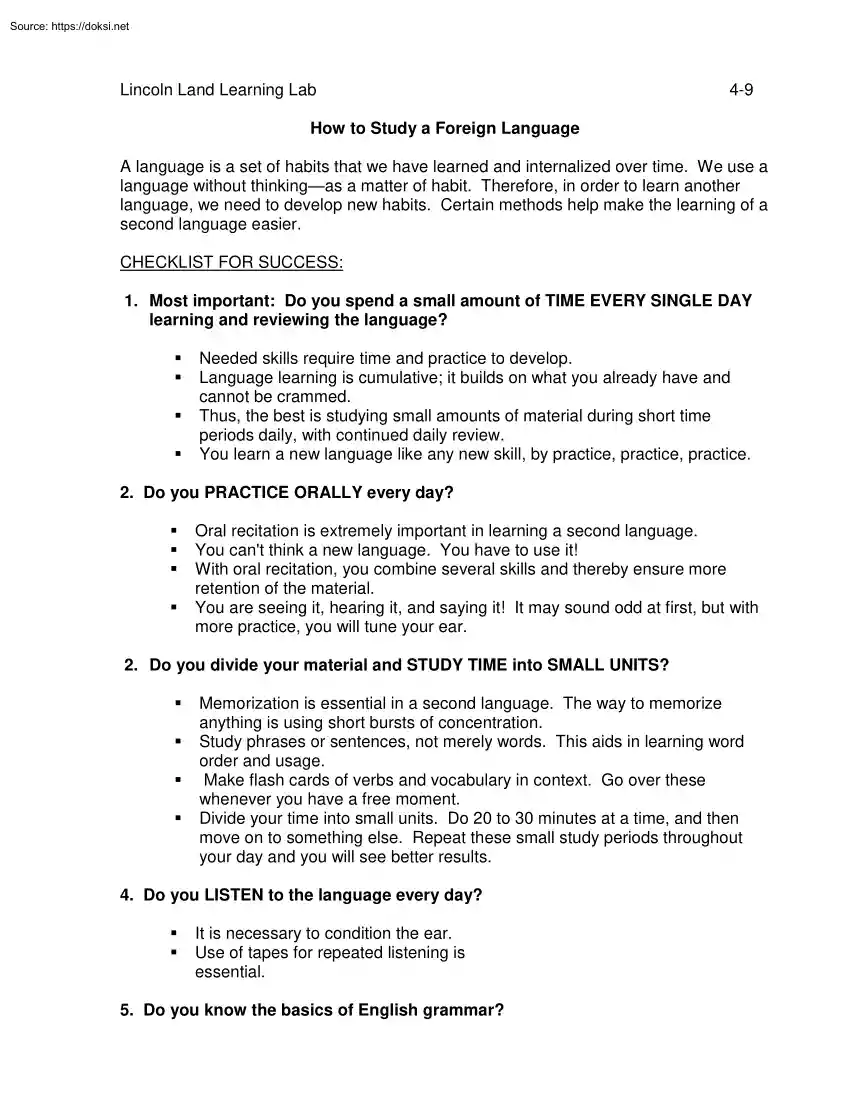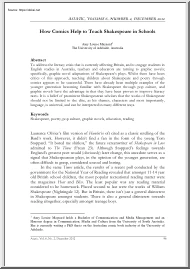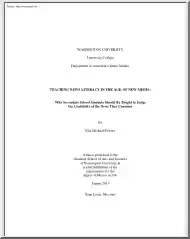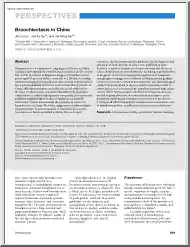Please log in to read this in our online viewer!

Please log in to read this in our online viewer!
No comments yet. You can be the first!
What did others read after this?
Content extract
Lincoln Land Learning Lab 4-9 How to Study a Foreign Language A language is a set of habits that we have learned and internalized over time. We use a language without thinkingas a matter of habit. Therefore, in order to learn another language, we need to develop new habits. Certain methods help make the learning of a second language easier. CHECKLIST FOR SUCCESS: 1. Most important: Do you spend a small amount of TIME EVERY SINGLE DAY learning and reviewing the language? Needed skills require time and practice to develop. Language learning is cumulative; it builds on what you already have and cannot be crammed. Thus, the best is studying small amounts of material during short time periods daily, with continued daily review. You learn a new language like any new skill, by practice, practice, practice. 2. Do you PRACTICE ORALLY every day? Oral recitation is extremely important in learning a second language. You can't think a new language. You have
to use it! With oral recitation, you combine several skills and thereby ensure more retention of the material. You are seeing it, hearing it, and saying it! It may sound odd at first, but with more practice, you will tune your ear. 2. Do you divide your material and STUDY TIME into SMALL UNITS? Memorization is essential in a second language. The way to memorize anything is using short bursts of concentration. Study phrases or sentences, not merely words. This aids in learning word order and usage. Make flash cards of verbs and vocabulary in context. Go over these whenever you have a free moment. Divide your time into small units. Do 20 to 30 minutes at a time, and then move on to something else. Repeat these small study periods throughout your day and you will see better results. 4. Do you LISTEN to the language every day? It is necessary to condition the ear. Use of tapes for repeated listening is essential. 5. Do you know the basics of English grammar?
Good knowledge of English grammar is important when learning a foreign language! We learn a new language most easily by comparison. Therefore, you usually need a good basic background in grammar before attempting to understand the grammar of another language. A second language learner learns faster and with less frustration when he is thoroughly conscious of the points of identity and difference between his own language and the one he is learning. 6. Do you have a set procedure for preparation of foreign language READING assignments? Procedure recommended: Read through without looking up words. Try to define and write down main theme or topic. List, if possible, specific sub-topics. Reread assignment carefully. Underline unknown words. Guess at meaning, using inference and other clues. If guessing fails, look up in vocabulary list. Place a dot next to the word Do not write English equivalents between lines of text. This practice directs your
concentration away from the foreign word. Expressions or phrases that you do not understand, even though you know the individual words, should be underlined. They may be idioms with special meanings. Read entire passage again. Test recall of underlined words or phrases. If not remembered, place second dot next to them. Ask teacher or tutor for help with these difficulties. Do exercises at end of lesson or passage, or in workbook. Writing out answers aids retaining information. Reusing new words and phrases aids retention. When reviewing for a test, check words and phrases marked with dots for difficulty to be sure they are learned. 7. Before tests do you review all papers, workbooks, and texts? All the material you have studied is important. Review it all and practice the skills you will be tested on. If you will have dictation, practice with tapes. Practice translating from English into the second language and from the language into
English. If you follow this checklist, your experience with a second language should be a positive one. Remember learning another language is a constant process of learning and relearning. Conscientious practice and review will lead to a good command of another language
to use it! With oral recitation, you combine several skills and thereby ensure more retention of the material. You are seeing it, hearing it, and saying it! It may sound odd at first, but with more practice, you will tune your ear. 2. Do you divide your material and STUDY TIME into SMALL UNITS? Memorization is essential in a second language. The way to memorize anything is using short bursts of concentration. Study phrases or sentences, not merely words. This aids in learning word order and usage. Make flash cards of verbs and vocabulary in context. Go over these whenever you have a free moment. Divide your time into small units. Do 20 to 30 minutes at a time, and then move on to something else. Repeat these small study periods throughout your day and you will see better results. 4. Do you LISTEN to the language every day? It is necessary to condition the ear. Use of tapes for repeated listening is essential. 5. Do you know the basics of English grammar?
Good knowledge of English grammar is important when learning a foreign language! We learn a new language most easily by comparison. Therefore, you usually need a good basic background in grammar before attempting to understand the grammar of another language. A second language learner learns faster and with less frustration when he is thoroughly conscious of the points of identity and difference between his own language and the one he is learning. 6. Do you have a set procedure for preparation of foreign language READING assignments? Procedure recommended: Read through without looking up words. Try to define and write down main theme or topic. List, if possible, specific sub-topics. Reread assignment carefully. Underline unknown words. Guess at meaning, using inference and other clues. If guessing fails, look up in vocabulary list. Place a dot next to the word Do not write English equivalents between lines of text. This practice directs your
concentration away from the foreign word. Expressions or phrases that you do not understand, even though you know the individual words, should be underlined. They may be idioms with special meanings. Read entire passage again. Test recall of underlined words or phrases. If not remembered, place second dot next to them. Ask teacher or tutor for help with these difficulties. Do exercises at end of lesson or passage, or in workbook. Writing out answers aids retaining information. Reusing new words and phrases aids retention. When reviewing for a test, check words and phrases marked with dots for difficulty to be sure they are learned. 7. Before tests do you review all papers, workbooks, and texts? All the material you have studied is important. Review it all and practice the skills you will be tested on. If you will have dictation, practice with tapes. Practice translating from English into the second language and from the language into
English. If you follow this checklist, your experience with a second language should be a positive one. Remember learning another language is a constant process of learning and relearning. Conscientious practice and review will lead to a good command of another language




 Just like you draw up a plan when you’re going to war, building a house, or even going on vacation, you need to draw up a plan for your business. This tutorial will help you to clearly see where you are and make it possible to understand where you’re going.
Just like you draw up a plan when you’re going to war, building a house, or even going on vacation, you need to draw up a plan for your business. This tutorial will help you to clearly see where you are and make it possible to understand where you’re going.